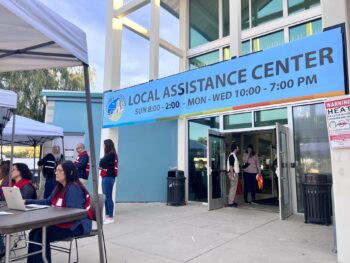Parole was denied for the former California Highway Patrol officer convicted of killing 20-year-old Cara Knott in 1986, the District Attorney’s Office announced Wednesday.
Craig Peyer, 61, is serving a sentence of 25 years-to-life in prison. The California Board of Parole Hearings determined he will not be eligible for another hearing for 15 years.
“Craig Peyer continues to pose a very real danger to the public,” said District Attorney Bonnie Dumanis. “Our office provided the board with information they needed to deny parole and our efforts were bolstered by support from the victim’s family and the community.”
Deputy District Attorney Joan Stein represented the DA’s Office at the hearing this morning at California Men’s Colony in San Luis Obispo, California. District Attorney Bonnie Dumanis attended the hearing at the family’s request to demonstrate the importance of this case to San Diego County. Dumanis also attended Peyer’s previous parole hearing; this was the third such hearing for Peyer.
Family members attended the hearing, some of whom addressed the parole board.
On December 27, 1986, Cara Knott called her family to tell them she would be leaving her boyfriend’s house in Escondido to drive home to El Cajon. When the 20-year-old San Diego State University student did not arrive home, the Knott family soon became concerned and contacted the authorities. It was entirely out of character for Cara not to arrive since she was always reliable and responsible.
After many hours of searching, family members spotted her white VW at the bottom of the dark exit at Mercy Road. The police were notified and soon found the body of Cara Knott; she was strangled, and her skull was smashed.
Before getting on the road, Cara had stopped to purchase gasoline at a service station near the interstate entrance.
Little did she know that for the next 10 miles, she would be followed by California Highway Patrolman, Craig Peyer.
As he had done previously with many other young female drivers, Peyer signaled Cara Knott to pull off the I-15 freeway at Mercy Road. This exit, being a favorite for Peyer, was dark and isolated. Apparently when the stop became inappropriately long or personal in nature, Cara Knott became uncomfortable.
While the details of the encounter are not known, the evidence is clear it turned deadly. Cara tried to escape. Peyer strangled her, then moved her body to a nearby bridge and threw her over it. Her lifeless body lay under Old Highway 395 as Craig Peyer sped away in an attempt to create an alibi and cover story. Peyer initially became a suspect after several of the young women reported bizarre behavior from a CHP officer who had pulled them over at the same exit, and detained them for between 30 minutes and two hours.
Peyer’s first trial resulted in a hung jury. His second trial resulted in a 1988 conviction of first-degree murder. Sentenced to 25 years-to-life, Peyer has appeared for two parole suitability hearings within the last eight years. At each, he was denied parole for four years.


